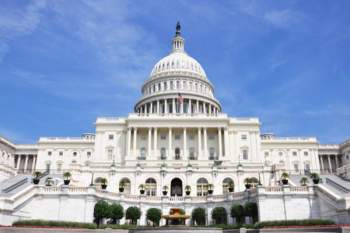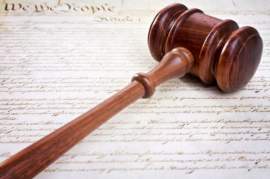
A Look at the Prohibition Amendments

Popular In Constitution
Purpose Of Lifetime Appointment And Pros And Cons Enumerated Powers Bicameral Legislature Background Article 3 Of The Constitution We The People 1st Amendment Who Wrote The Constitution Judicial Review Equal Protection Clause 5th Amendment 10th Amendment Three Fifths Compromise
Amendments to the U.S. Constitution, made during important time periods in the United States, often take on the title of that era. This is true of the Eighteenth Amendment to the U.S. Constitution, which is informally referred to as the Prohibition Amendment. The Prohibition Amendment was an Amendment that regulated under what condition high-proof spirits could be manufactured and distributed in the United States. Under this law, the manufacturing of high-proof spirits was limited and they were not allowed to be sold as beverages. The Prohibition Amendment worked in conjunction with the Volstead Act, which was implemented to reinforce prohibition in the United States. The Eighteenth Amendment was ratified and implemented in 1919. One aspect of the Prohibition Amendment that is particularly interesting is that it was created to suit the time. It is also the only Amendment that has been repealed. In the list of Amendments, many have been expanded on further to encompass new groups of individuals or flesh out the rights citizens already have, but the Eighteenth Amendment is the only one that has had a counterpart repeal it. In 1933, the Twenty-First Amendment to the U.S. Constitution was implemented. This was the Amendment that repealed all of the restrictions on manufacturing and distributing high-proof spirits. Overall, the list of Amendments can give rights and privileges or regulate certain areas of the nation or Government. These Amendments can be implemented at any time, but require serious consideration and formal voting from the entirety of Congress, and then the various states of the United States.


















